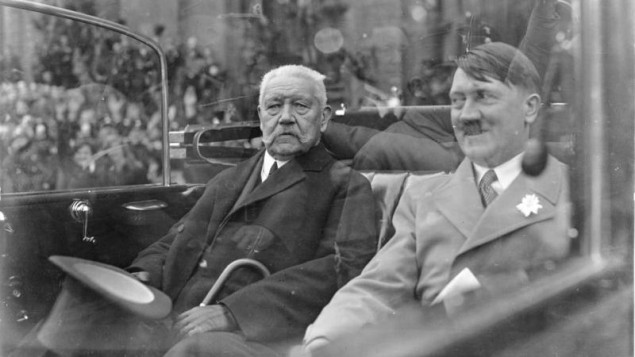
British intelligence documents could have changed the course of history. The newly released documents previously classified supports the testimony of a pre-WWII German diplomat who said that a single document that was once in his possession could have prevented Adolf Hitler from consolidating power.
In the file, Tschirschky stated that he helped Hindenburg in drafting his last will and testament. The document, he claimed, denounced Hitler and his rule and called on the German people to embrace democracy. The 84-year-old Hindenburg, to his regret, appointed Adolf Hitler as chancellor in 1933. However, Hitler got hold of the last will and testament. Upon the death of the president, Hitler gave orders to “ensure that this document comes into my possession as soon as possible”, narrates Tschirschky in his testimony in the file.
A loyal Nazi in the person of Hindenburg’s son gave the will to Hitler. After, the document was presumed destroyed. In Tschirschky’s opinion, the will had the power to destroy Hitler’s ambition before the Holocaust happened. In his will, Hindenburg strongly stated that the army should be separate from the clutches and control of politics. He called for the creation of a constitutional monarchy which would hold separate powers. The separation of powers would have neutralized the Nazis. In an interview in 1947, Tschirschky stated when he defected that the will also called for the abolition of all forms of racial and religious discrimination.
He further claimed that “Hitler would never have come into power, and there would have been no war, if the wishes of Hindenburg had been known to the German people.” Two drafts of the said will and testament survived even after Hindenburg’s death. The report further stated that one was seized by the Nazis in Switzerland and was destroyed. The other was kept by Tschirschky which he claimed he destroyed out of fear before escaping from Germany.
After Hindenburg’s death, Hitler immediately consolidated power by gaining control of the offices of president and chancellor and thus becoming the most powerful man in Germany. After several days, the Nazis publicized a document said to be the deceased president’s “political testament”. The possible forgery was full of compliment references to Adolf Hitler, a striking difference to the contents of the will which Tschirschky said he had once in his possession.
